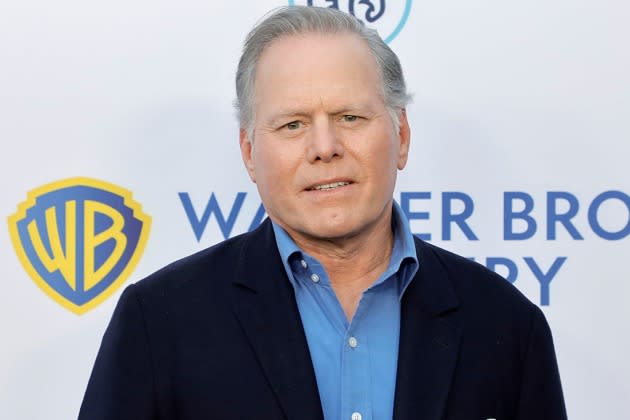Warner Bros. Discovery Reports 92.1M Combined Streaming Subscribers In First Full Earnings Since Merger

For the first time since WarnerMedia and Discovery Inc. merged earlier this year, the combined Warner Bros. Discovery reported full quarterly earnings, outlining its plan to fully integrate the two companies, and find billions of dollars in cost savings along the way.
But of course it’s streaming that remains top of mind for Wall Street, and WBD opted to combine all of its direct-to-consumer subscribers into one number for the quarter, disclosing a total DTC subscriber base of 92.1 million, inclusive of HBO Max and Discovery+.
More from The Hollywood Reporter
WarnerMedia had previously reported 76.8 million subscribers to HBO or HBO Max last quarter, with Discovery reporting 24 million DTC subscribers, but those reports used an older definition of what a subscriber is. The new numbers do not include “10 million legacy Discovery non-core subscribers and unactivated AT&T mobility subscribers from the Q1 subscriber count,” per the company. WBD adds that when using its new definition of direct-to-consumer subscribers, the company added 1.7 million subscribers from Q1 to Q2.
WBD executives have said that they plan to launch a combined streaming service in the coming months.
The company reported revenues of $9.8 billion and a loss of $3.4 billion, missing Wall Street estimates. Consensus had been for earnings of $11.91 billion and an EPS of $0.08. The company was also expected to add more than 1.6 million combined streaming subscribers.
WBD had $2.7 billion in advertising revenue for the quarter, $4.8 billion in distribution revenue, and $2 billion in content revenue. The streaming side of the business lost $1.5 billion in the quarter.
In a statement, WBD CEO David Zaslav gave a clue to the company’s thoughts on distribution, implying that it would not be placing all of its chips on streaming.
“We intend to maximize the value of that content through a broad distribution model that includes theatrical, streaming, linear cable, free-to-air, gaming, consumer products and experiences, and more, everywhere in the world,” he said.
On the earnings call, Zaslav touted the company’s “optionality,” praising the value of windowing, and adding that “we will fully embrace theatrical, as we believe it creates interest and demand.”
He also said that they are “big believers in the linear business” when it comes to TV. “We expect it is going to be a very significant cash generator for us.”
WarnerMedia and Discovery completed their merger in April, creating the entertainment powerhouse, with many former Discovery executives at the helm. CFO Gunnar Weidenfels and Zaslav have promised to find some $3 billion in cost savings, and many analysts expect that number to be conservative.
The company already scrapped the CNN+ streaming service just weeks after launch, and significantly cut back on scripted programming at TBS and TNT, leaning into sports and unscripted fare instead.
This week, the company disclosed the shocking decision to cancel two movies that were in development for HBO Max, a Scooby Doo feature, and Batgirl, a $90 million DC Comics film that had already finished principal photography and was in postproduction.
The merged firm’s earnings report (and the subsequent call) caps a frenzy of speculation this week in Burbank and New York as rumors swirled about deep cuts, which original programming could be axed and the removal of content from HBO Max. Staffers and observers have also been looking to see how the conglomerate will balance debt obligations, advertising market headwinds and supply-chain issues as it looks to tighten its belt on content spend.
However, Zaslav heaped praise on HBO Max and its leadership team Thursday, noting that HBO chief Casey Bloys signed a new long-term deal, and that the company planned to give them more cash to spend in the coming years.
A CNN source said that within the company’s Hudson Yards offices there was definitely “anxiety” among some staff that work across multiple teams at the company. CNN already saw layoffs when CNN+ was shuttered, but more significant cuts are expected in the coming weeks and months.
But Zaslav was nothing but optimistic.
“In many ways we are just getting started, and have only really begun to scratch the surface in terms of potential upside,” he said, adding later on that the company is, ultimately, in the business of generating cash. “We’re not in the business of trying to pick up every sub, we want to get paid.”
